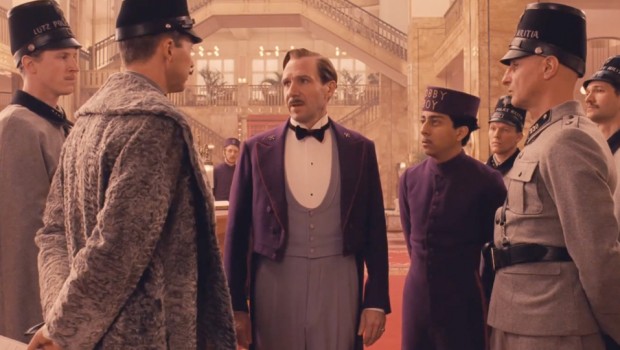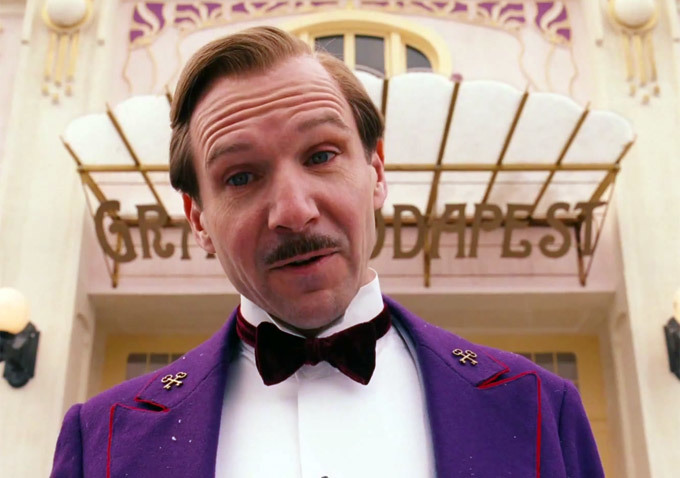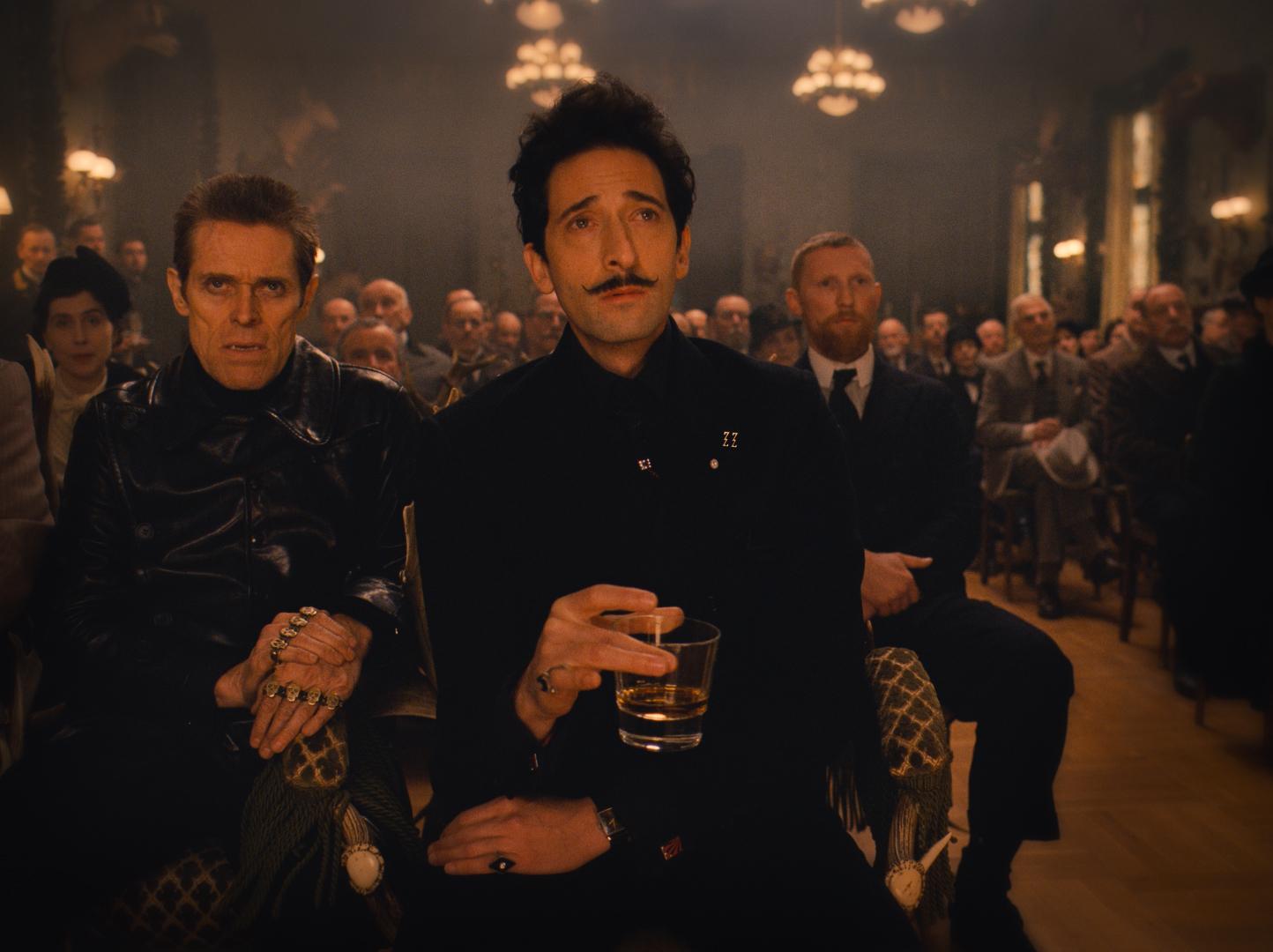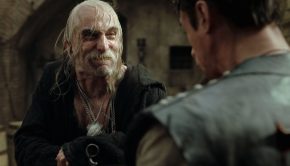The Grand Budapest Hotel – Film Review
Reviewed by Damien Straker on April 7th, 2014
Fox presents a film by Wes Anderson
Produced by Wes Anderson, Jeremy Dawson, Steven M. Rales and Scott Rudin
Written by Wes Anderson
Starring: Ralph Fiennes, F. Murray Abraham, Tony Revolori, Adrien Brody and Willem Dafoe
Music by Alexandre Desplat
Cinematography: Robert Yeoman
Editing by Barney Pilling
Running Time: 99 minutes
Rating: M
Release Date: April 10th, 2014
What is it that people enjoy about Wes Anderson’s films? He is a rarity in an industry determined to standardise cinema. It is impossible to duplicate the tone and the direction of an Anderson film without drawing comparisons. Since his first feature Bottle Rocket (1996) his films have developed their own cult following because of his unique stylistic choices. His films are highly formal and dictated by deadpan humour, rapid fire quips and quirky details. There is also a balance between pure charm and humanity when he focuses on his most persistent theme, the family unit. Yet he has never been known for his restraint. By writing his own scripts, he can sometimes be his own worst enemy. He overloads his films with strange details that can feel overly ambiguous and purposeless. Audiences don’t seem to mind. Moonrise Kingdom (2012) was the biggest hit of the seven films that he had made. It earned more than fifty million dollars, which says people are willing to embrace films that are unique and sometimes challenging. This year the Texan-born filmmaker is forty-five, which is a crucial age for any filmmaker looking to solidify their relevancy. How do you continue to make such imagination accessible to a broadening audience? The Grand Budapest Hotel proves Anderson is still navigating between independent filmmaking and mainstream cinema and looking for a new direction. While most of his films have centred on American families, this is the first story that he has set in Europe and also in a retrospective time period. His quirkiness and the humour are still intact but it’s more accessible due to conventional and sometimes safer narrative techniques.
The best aspect of the film is the lead performance Anderson draws from Ralph Fiennes. The actor is most renowned for playing villains, like a Nazi in Schindler’s List or Lord Voldemort in the Harry Potter films. Who would have known he could be so funny? His performance as M. Gustave, a 1932 hotel concierge, is a showcase for some hilarious comic timing and the articulations of Anderson’s script. Smartly, Anderson has tapped into Fienne’s theatrical roots. From the start of his acting career he has been as a Shakespearean stage performer. He knows how to control his voice, deftly fluctuating between being pompous and then shedding his sincerity. He plays Gustave straight so that he and the audience believe in every self-absorbed line and moment of vanity. There are some great one-liners in the film like when he gushes at what a masterpiece a painting called “Boy with Apple” is and then calls everything else useless junk. Yet Gustave’s characterisation as a self-absorbed womaniser and his friendship with a lobby boy named Zero (Tony Revolori) leaves little doubt about how he will develop as a person throughout the narrative. Wes Anderson has resorted to using a very calculated character arc for this fascinating creation so that he inevitably becomes a much less selfish person and more caring for his young assistant too. It’s surprising given how bizarre and unusual the director’s writing can be. Nonetheless, Gustave’s bravest gesture of friendship is equally the film’s most chilling and unforgettable scene. It is darker than you might be expecting from an Anderson film.
What is also surprising is how comically violent the film is. By being set in 1932, its themes purposely foreshadow the events of the Second World War. It is about the way that “greed poisons the blood streams” as Gustave says and how war and greed disintegrates institutions like the hotel itself, the Church and prisons. The Third Reich is Anderson’s most obvious reference point, right down to including a murderous villain dressed in black leather. He also uses a range of technical choices to strengthen the ideas about institutions. In the contemporary scenes, the hotel is framed by a long shot to show emptiness of the building as an expression of its deterioration over the years. It is coloured with brown and orange tones to highlight its banality and the loss of its prestige. In the 30s period, the camera is fluid and unbroken, crabbing sideways as it follows Gustave through the corridors to show the organisation and briskness of the institution. The purple fabric of Gustave’s jacket is equally district, reflecting prestige or royalty, which is true to the facade he upholds to his guests. The compromise one has to make about these ideas of war and greed is that Anderson resorts to set pieces that parody action film clichés to advance the story in the second half of the film. By referencing war and using a multi-tiered narrative that frames several decades of storytelling, Anderson is at the middle of point of his life, considering the uncertainty of the world. He is asking what stories he is going to pass onto others like his own family. As he is growing older, he is becoming more nostalgic, serious and melancholic, even though he still finds the hilarious and silly side of life.
Summary: Anderson is at the middle of point of his life, considering the uncertainty of the world.









